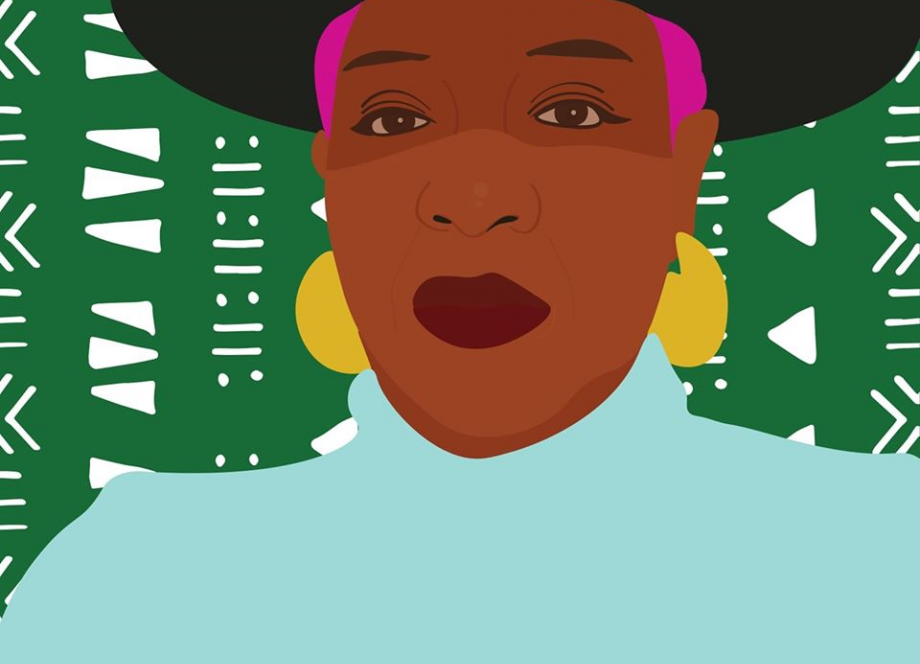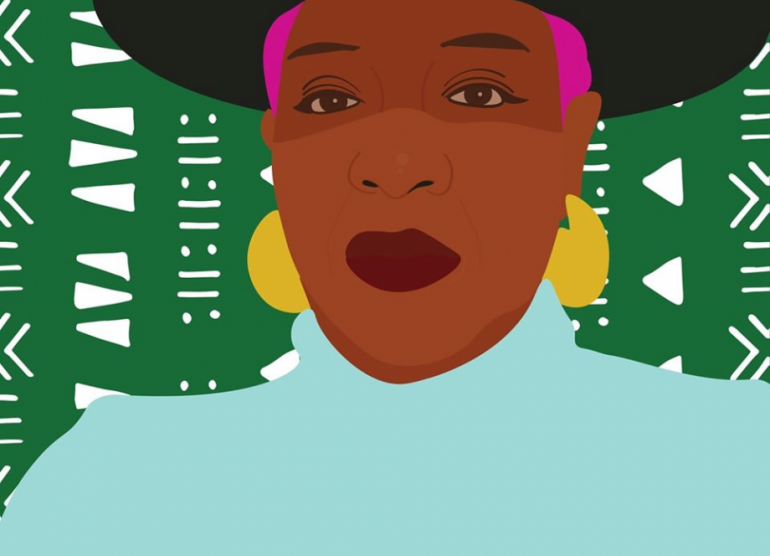At the UF School of Art + Art History, Dr. Porchia Moore, a cultural heritage informaticist and assistant professor of museum studies, adds a range of perspectives to the growing role and responsibilities museums have in society. She joined the College of the Arts faculty in 2019, filling the role of a new professorship that was created from the Faculty 500 initiative. Prior to UF, Moore received a Ph.D. in library and information science from the University of South Carolina. A prominent voice in the spectrum of museum studies, Moore is an active cross-pollinator and advocate for increased cultural awareness. In the classroom, she encourages students to think about the role museums can play in the decades to come.

Ryan: What is the focus of your research and what do you hope to bring to the University of Florida?
Porchia: My focus right now is primarily on introducing new critical theory to the field and doing research to bridge the gap between cultural heritages and institutions. I’m a cross-pollinator because I combine my Ph.D. in library and information science with my experience and research in museums and cultural heritage. This effort to bridge the gap between cultural heritage and institutions is enhanced here at the University of Florida because of the synergy between the UF library systems and museums. I want to help museums understand that they can offer the services and research platforms to students and professors just like libraries do, and, even beyond that, they can be a community space.
Ryan: What does this mean for museums overall and their role in the world of art and culture?
Porchia: The role of museums is changing significantly and should be reflective of the times we live in. There has been debate in the past year on the definition of museums and how they should fit into the 21st century.
There was this prediction in the field where museums should not be this static building and institution where objects were being housed and interpreted. What people really want is this “third place,” beyond work and home.
It’s a library, a museum, a lounge, a coffee shop, a community space where people can get information, relax, or explore cultural heritage from around the world in a transformational space, a democratic space for polyanic voices that pushes the envelope of representation for cultural heritages into both tangible and intangible aspects, such as language. This is the shift we need to see in museums to reflect the changing world around us.
Ryan: What will be the effects of COVID-19 on museums and their role in the arts?
Porchia: This goes back to museums being a community space. We have to totally rethink the notions of engagement. I created an assignment for my students to research how cultural heritage institutions have responded to this moment, to show them a new view on how they should frame themselves as they emerge into the field as professionals. I think that this moment will show the role of museums to be there for the benefit of the community, like how so many people are relying on museums for online exhibitions. Their role in the community will be so much more important, as will the methods of their engagement.
Ryan: How do you see this change branching into UF?
Porchia: At UF, we want safe, informational spaces to talk about race and culture, economics, and more. Increasing others’ cultural knowledge will take UF to a more global and higher-ranked role. Rethinking those notions of engagement through muse-tech and combining that with critical race theory will create a great synergy at UF. Increasing cultural and racial literacy and then combining it all within a community space is a focus for the future.
Ryan: With everything you’ve talked about, and all the changes that are in store, how do you see the future moving forward?
Porchia: It will be the job of curators and archivists to tell the narratives of COVID-19, but there is a danger in the telling of a single story.
If we only tell that single story, then we automatically suppress and oppress all of the other lives that really matter.
It would be a tragedy if curators and historians only collected the stories of the people in one city, for example. Beyond the telling of these narratives, I hope we develop an increased understanding of the power of cultural heritage. By doing that, you increase your empathy, which is so crucial to this work. Allowing your filter to be as equitable and knowledgeable as possible, changing the notions of engagement and the role of museums in the community, and creating a synergy between disciplines will be the future of this field.
The College of the Arts approached a new hiring process to combat biases and call for change-makers. Read more about how faculty and staff searched for candidates like Porchia Moore here.
You can listen to Porchia Moore discuss how radical librarians and museum workers are making information and art institutions newly accessible in our new social distancing world in this feature on the Imagine Otherwise podcast.
This story was originally posted on UF College of the Arts.
Check out more stories about UF research on COVID-19.

